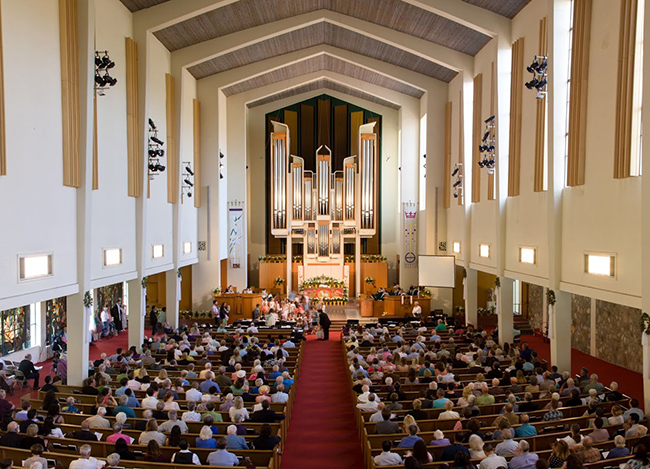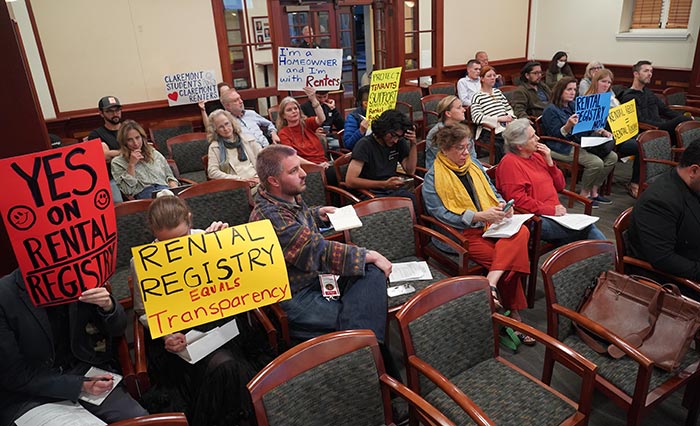Claremont city council candidate Jed Leano

Jed Leano’s motivation for running for council was driven by three key areas—homelessness, sustainability and services for Claremont’s aging population.
The seven-year Claremont resident and community and human services commissioner owns his own law practice that provides representation in all immigration matters from deportation defense, green card applications, work-related visas, naturalization applications and immigration appeals.
His high-energy personality will lend itself to more engagement with residents as a councilmember, he says.
“It’s not a good policy to just react to problems—we need to set an agenda and go fight for it,” he said.
He believes one of the city’s greatest looming challenges will include affordable housing. He supports “smart growth” in Claremont; growth that respects the city’s architectural heritage, commitment to sustainability and trees, and housing that is clean and safe.
“All communities are changing,” he said. “Transit-oriented districts are the future; they have to be.”
For Village South on Indian Hill Boulevard south of First Street, Mr. Leano emphasizes the Vortox Building, which is owned by Keck Graduate University (KGI), is the most critical piece.
“The first judgment will be based on that one window,” he said. “I hope that first window is a huge success. We want people to see it and say, ‘This is a place to hang out.’”
Town-gown relations will work heavily into planning for Village South. Some residents and city leaders have intimated that the Colleges, in this case KGI, missed opportunities to weigh in during planning. Mr. Leano sees town-gown interaction as generally less clear-cut.
“Just because you come in at the last stage doesn’t mean your opinion is invalid,” he said. “I don’t fault them for their objective. It’s just a different mindset.”
An ability to recognize subtleties in process is fundamental to running a successful campaign and, he says, is essential for a councilmember.
“Things like the affordable housing bill are nuanced,” he said. “It’s not enough for the city to chime in later on how we deal with that; we need to get actively engaged in that plan.”
His focus on active engagement won’t stop at housing issues, he says. He acknowledges that the city budget, which currently estimates a $1.8 million shortfall next year, needs to be dealt with head-on.
Mr. Leano has recently seen good practices by the city staff to cut costs. Some bushes outside the Hughes Center, which required a lot of care and watering, were replaced with drought-tolerant landscaping thereby reducing the water bill.
Furthering the city’s sustainability goals is imperative, he said. In an effort to cut costs, the city eliminated an arborist position, a move Mr. Leano said created a back fill of work.
“He was everywhere,” Mr. Leano said. “In seven years, we cut down more trees than we planted, but this year we’ve planted more, because we got grants. Grants to supplement our tree program are important, but with 24,000 city trees, we can’t assume we’ll have five grants already lined up. We have a long way to go.”
He realizes in order to pass a budget, as a councilmember, he will have to make some unpopular decisions.
“But that is leadership,” he said. “I am qualified and smart enough to make those decisions. And I won’t vote for anything unless we can pay for it,” he said.
With a $50.8 million unfunded CalPERS liability, Mr. Leano said he is well aware it won’t be easily resolved. The only solution at this point is to simply pay it off.
“We can’t just leave it; we owe it,” he said. “But we need to avoid these types of agreements going forward and plan no unfunded benefit increases. We need to pay as we go.”
Raising revenues is a high priority for Mr. Leano. He remains vigilant that economic revenues can change, but need to be reviewed to stay competitive as a city. The council’s recent approval updating user fees, specifically the fact that the Oak Park Cemetery fees hadn’t been adjusted in 13 years, was just one example of ways the city can generate funds.
“When the recession hits, not if but when, the only way to ride it out will be to have adequate capital reserves—and the only way to have adequate capital reserves is to put something away each year,” he said.
Financial solvency will allow for other important projects, like building a new police station. Mr. Leano, who indicated he “wasn’t crazy about the GO bond” but would vote yes for a square footage parcel tax, is interested in any suggestions to scale down the project with just one caveat.
“I will not budge on having a jail. I do not want our officers going to Covina to lock people up,” he said. “We can set our own policy on how people are treated in our jails. I want control over it.”
With his growing family, Mr. Leano’s political aspirations probably won’t extend more than 10 years or so. And as for his youthful aspiration of becoming a pro golfer? That was set aside when he accepted the fact that he can’t putt.
“I can teach my son though. My political career will only last until my son goes pro,” he quipped.
Between golf and rooting for his beloved University of Kentucky—he even expressed a little concern about scheduling because the Wildcats play Duke on election night—ultimately, Mr. Leano is drawn to leadership because of the human component.
“Do they inspire you? Do they motivate you?” he posed. “I hope to motivate and inspire young people to participate. When they hear me talk, I’d like them to say, ‘I can do that, too.’”
—Kathryn Dunn
editor@claremont-courier.com









0 Comments